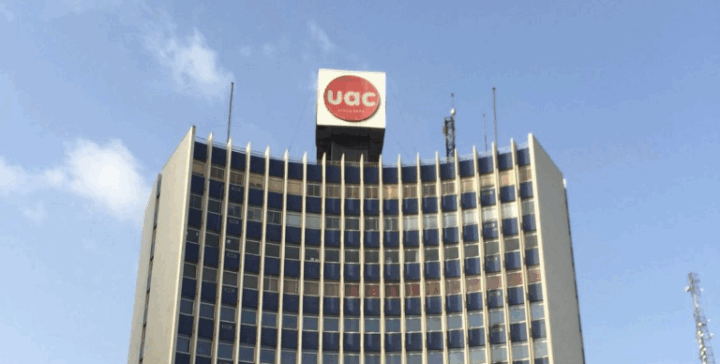UAC of Nigeria Plc has reported a profit of ₦7.36 billion for the first half of 2025, representing a decline compared to the same period last year. The conglomerate, which operates across food, paints, logistics, and animal feeds, attributed the drop to rising operational costs, challenging market conditions, and currency volatility affecting import-dependent inputs.
In its half-year financial statement released to the Nigerian Exchange (NGX), the company disclosed that revenue grew modestly year-on-year but was offset by a significant increase in expenses. Inflationary pressures, higher energy costs, and fluctuating foreign exchange rates were cited as key factors that weighed on margins.

Group Managing Director, Mr. David Ifezulike, said the company maintained resilience despite the harsh business climate. “Our business segments continue to perform in line with expectations, but macroeconomic headwinds have impacted profitability. We are focusing on efficiency improvements, cost control, and targeted investments to strengthen our long-term competitiveness,” he stated.
The food and beverage segment remained UAC’s highest revenue contributor, driven by strong demand for staple products. However, rising input costs, particularly for imported raw materials, eroded profit margins. The paints and coatings unit also recorded stable sales but faced higher production costs due to increased prices of chemicals and packaging materials.
The animal feeds and other agro-allied operations posted moderate growth in revenue, supported by an uptick in demand from the livestock sector. Nevertheless, rising grain prices and logistics expenses trimmed overall profitability in the division.
UAC Logistics, which provides supply chain solutions to both the group and external clients, reported higher turnover but was also hit by higher diesel costs and transport-related inflation, reflecting broader trends in the Nigerian economy.
The company’s finance costs rose during the period as a result of higher interest rates and the impact of foreign currency loans. UAC also noted that the depreciation of the naira against major currencies had an adverse effect on cost structures, especially for businesses that rely heavily on imported components.
Shareholders reacted cautiously to the results, with analysts noting that while the profit dip was expected given the economic climate, UAC’s diversified operations still provide a buffer against sector-specific downturns. They stressed the need for the group to deepen its local sourcing strategy to mitigate the effects of currency swings on operations.
Looking ahead, UAC said it will continue implementing strategic initiatives aimed at improving operational efficiency, optimising its supply chain, and driving innovation in product offerings. The company also plans to expand its distribution network to reach more customers and tap into new market opportunities.
Despite the profit drop, management expressed confidence in the group’s ability to deliver sustainable growth, highlighting ongoing investments in technology, staff development, and brand visibility. UAC reaffirmed its commitment to enhancing shareholder value through prudent financial management and strategic business expansion.
Industry observers say the company’s performance reflects the broader challenges facing Nigerian manufacturing firms, where inflation, exchange rate volatility, and energy costs have combined to squeeze margins. They note that unless the macroeconomic environment improves, profitability across the sector may remain under pressure.
For now, UAC’s focus will be on weathering current economic headwinds while positioning itself for stronger performance in the second half of the year, with management hopeful that stabilising currency markets and easing inflation could support a rebound in profitability.
Moving forward, UAC intends to intensify its localisation strategy by partnering with domestic suppliers and farmers to reduce reliance on imports. This approach, according to the management, will not only help curb foreign exchange exposure but also contribute to the growth of Nigeria’s agricultural and manufacturing value chains. The group is also exploring renewable energy options to lower production costs and improve operational sustainability.
Ultimately, while the immediate outlook remains challenging, UAC’s leadership believes its diversified portfolio, strategic cost management, and market reach will enable it to navigate economic uncertainties. By continuing to adapt to evolving market conditions and prioritising customer satisfaction, the company aims to return to stronger profitability and sustain its role as one of Nigeria’s leading conglomerates.
Support InfoStride News' Credible Journalism: Only credible journalism can guarantee a fair, accountable and transparent society, including democracy and government. It involves a lot of efforts and money. We need your support. Click here to Donate
